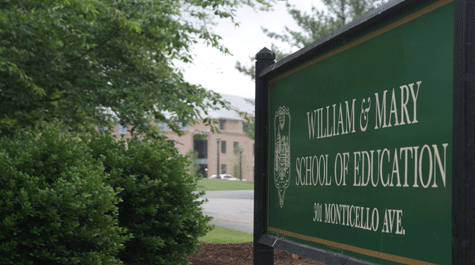Elementary Literacy Workshop
Dates pending.
- Teachers learn how to use student engagement indicators to promote learning in their classrooms,
- Teachers learn about observing student indicators of engagement and using this feedback collaboratively to inform teaching practices; and
- Educators share their progress and efforts with peers and synthesize previous learning by exploring management and differentiation strategies for nonfiction literacy that integrate student choice and high-yield teaching practices.
SURN's Nonfiction Literacy Workshop participants have been motivated and engaged throughout this year's initiative. SURN is excited to be able to provide participants with resources to be successful, including nonfiction trade books for the classrooms of each teacher in attendance.
Goals and Workshop Content
- Engage in a series of workshops to increase teacher knowledge of high yield strategies
- To have teachers integrate highly engaging instructional strategies to support student growth in nonfiction literacy and to build collaboration and support among teachers.
- Research, develop, and deliver core content non-fiction reading, writing, and oral language modules using Power Tools in Adolescent Literacy strategies for grades 3-5.
- Develop the capacity of selected teacher leaders (i.e., those with administrators in the Principal Academy) to conduct peer observations and engage in collegial dialogue using the classroom observation data.
The Importance of Nonfiction Literacy
Research Highlights
“Teachers need effective, easy-to-implement ways to increase students’ nonfiction reading skills, their access to good nonfiction books, and their motivation for reading them. Consider doing the following:”
- Book talk more nonfiction
- Read nonfiction texts aloud
- Use nonfiction as mentor texts
- Pair nonfiction texts with texts on related topics
- Provide access, time and supports (Miller 2013)
86% of US students (4th grade) meet the intermediate international reading achievement benchmark on the PIRLS 2011. This is an increase from 80% in 2001 and 82% in 2006. The PIRLS achievement test looks at students’ performance in reading literary and nonfiction texts through their response to questions that measure comprehension processes, including retrieval, inferencing, integrating, and evaluating their reading. The assessment is divided in half between the two most common purposes for reading in school: literary experience and to acquire and use information. Students in the US did significantly better on the literary portion of the assessment and significantly worse on the informational portion as compared to the overall reading score. (PIRLS 2011)
Driving Directions
The workshop is being held on the campus of The College of William and Mary in the School of Education's Professional Development Center. The address is 301 Monticello Avenue, Williamsburg, VA. A parking pass is required and will be emailed to participants.

From Richmond and points west:
- Take Interstate 64 East to exit 234 (Route 199 East) towards Lightfoot.
- Follow Route 199 approximately 6 miles to the Monticello Avenue exit.
- At the bottom of the ramp, turn left at the stop light onto Monticello Avenue.
- Stay on Monticello Avenue for approximately 1.5 miles. At the sixth light, you’ll see a large sign on the right for the School of Education. Turn right at the light.
- Park in the lot specified on your parking pass. Be sure to display your parking permit which will be emailed.
From Norfolk and points east:
- Take Interstate 64 West to exit 242A (Route 199 West) towards Williamsburg and Jamestown.
- Follow Route 199 approximately 6 miles to the Monticello Avenue exit.
- At the bottom of the ramp, bear to the right onto Monticello Avenue.
- Stay on Monticello Avenue for approximately 1.5 miles. At the sixth light, you’ll see a large sign on the right for the School of Education. Turn right at the light.
- Park in the lot specified on your parking pass. Be sure to display your parking permit which will be emailed.
Travel Time from Air Transportation:
- Newport News/Williamsburg International Airport – 30 minutes www.nnwairport.com
- Richmond International Airport- 40 minutes www.flyrichmond.com
- Norfolk International Airport- 1 hour www.norfolkairport.com
Email surn@wm.edu for questions on events or registration.